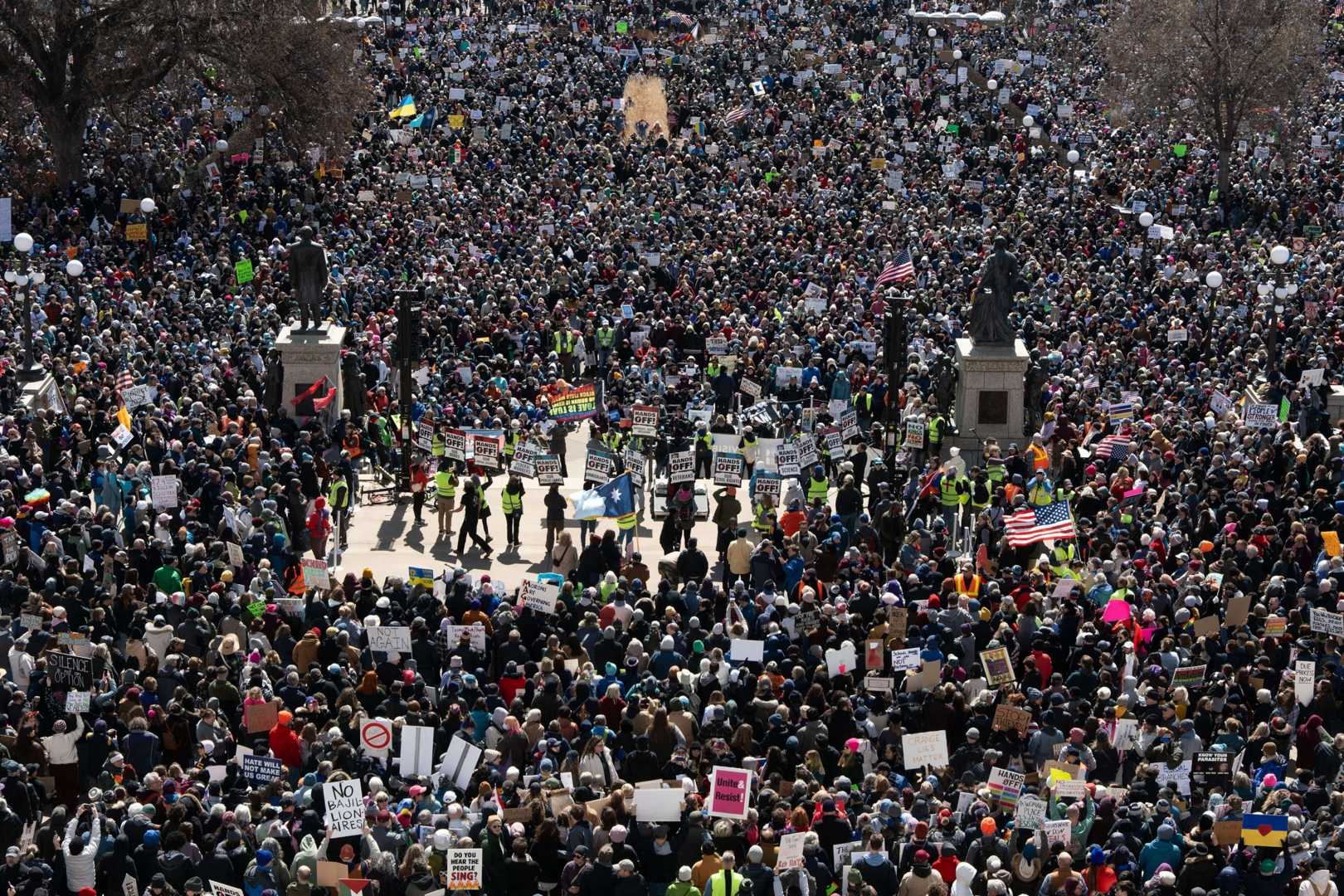News
Nationwide Protests Erupt Against Trump Policies Amid Rising Tensions

WASHINGTON, D.C. — Thousands of protesters across the United States took to the streets on Saturday, opposing President Donald Trump’s controversial policies in a fresh wave of demonstrations just two weeks after similar nationwide mobilizations. With more than 700 events registered from coast to coast, the protests reflect a continued resistance to Trump’s leadership.
While turnout was reported to be smaller in some major cities like Chicago and New York compared to the mass protests on April 5, the breadth of the demonstrations spanned from Jacksonville, Florida, to Anchorage, Alaska. In Washington, D.C., several thousand people rallied in front of the White House and marched along Constitution Avenue, chanting “Shame!” as they voiced their concerns about civil rights violations and executive overreach.
Among the key issues raised was the case of Kilmar Abrego Garcia, a Maryland man deported to El Salvador despite a court ruling allowing him to remain in the U.S. Protesters demanded his return, holding signs that read “Bring Kilmar home” and criticizing the administration’s deportation policies. Julia Fine, a Maryland resident, described the Salvadoran prison where Garcia is detained as akin to “concentration camps.”
“That’s where we’re headed with this,” Fine said, emphasizing the fears many have regarding unchecked executive power.
In New York City, demonstrators gathered in Washington Square Park, holding signs that read “First they came for the immigrants…” and “No ICE in our state.” Aaron Burk, a rally attendee, highlighted the fear felt by many regarding increasing immigration enforcement. “I’m a citizen, but the way things are going, anyone who looks like me is fair game,” he noted.
Across the nation, protesters voiced a range of grievances extending beyond immigration. In Chicago’s Daley Plaza, individuals rallied against federal job cuts and expressed concerns over veterans’ rights and Social Security. Fio Holloman, a 22-year-old protester, spoke about the impacts of Trump policies on social programs crucial for many families.
“It’s not just about Trump the man. It’s about Trumpism as policy,” she stated, as participants waved signs demanding “Hands off Social Security.”
In Jacksonville, Florida, demonstrators condemned Trump’s rollback of LGBTQ+ rights and the weakening of the Endangered Species Act. Sara Harvey, a protester, emphasized the connection between protecting the environment and civil rights, stating, “This isn’t just about one community.”
As protests continued, many attendees described the experience as emotionally and socially necessary. Andrea Mallory, a social worker from Cincinnati, found the protests therapeutic: “This is good for us emotionally,” she said, reflecting on the sense of community among protesters.
In Concord, Massachusetts, concurrent with the 250th anniversary of the American Revolution, some participants used the historical celebration to draw parallels between past and present. Conan Walter, a local historian, held a sign reading “Stop fascism now,” warning against perceived authoritarian tendencies in current governance.
Despite the varied themes of the protests, a common thread remained — the urgent call for civic engagement and awareness. Activists throughout the country urged attendees not only to voice their concerns but also to engage in the electoral process, as many distributed voter registration forms and information on legal rights.
As rallies concluded across the nation, the sentiment was clear: while the November elections loom, grassroots organizing remains a powerful tool for change, reflecting both the frustrations and hopes of diverse communities tackling pressing issues under the current administration.












